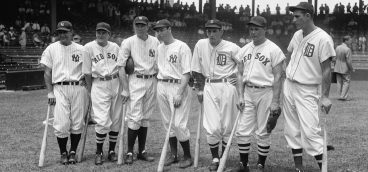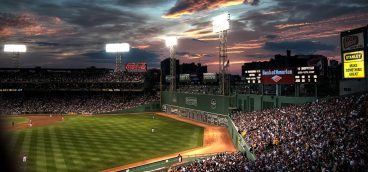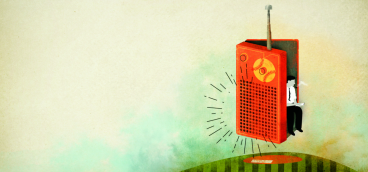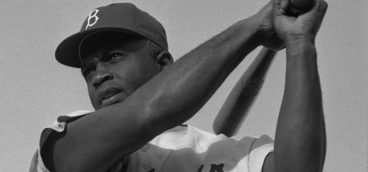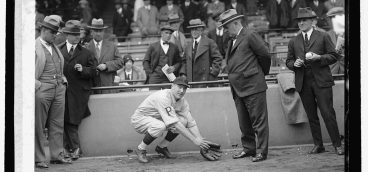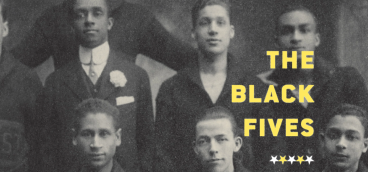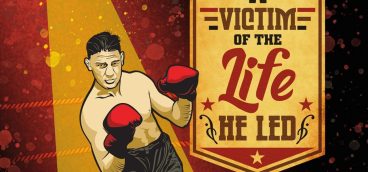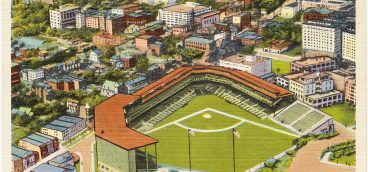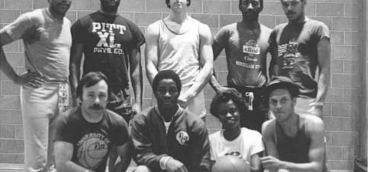Baseball’s First Great Jewish Star
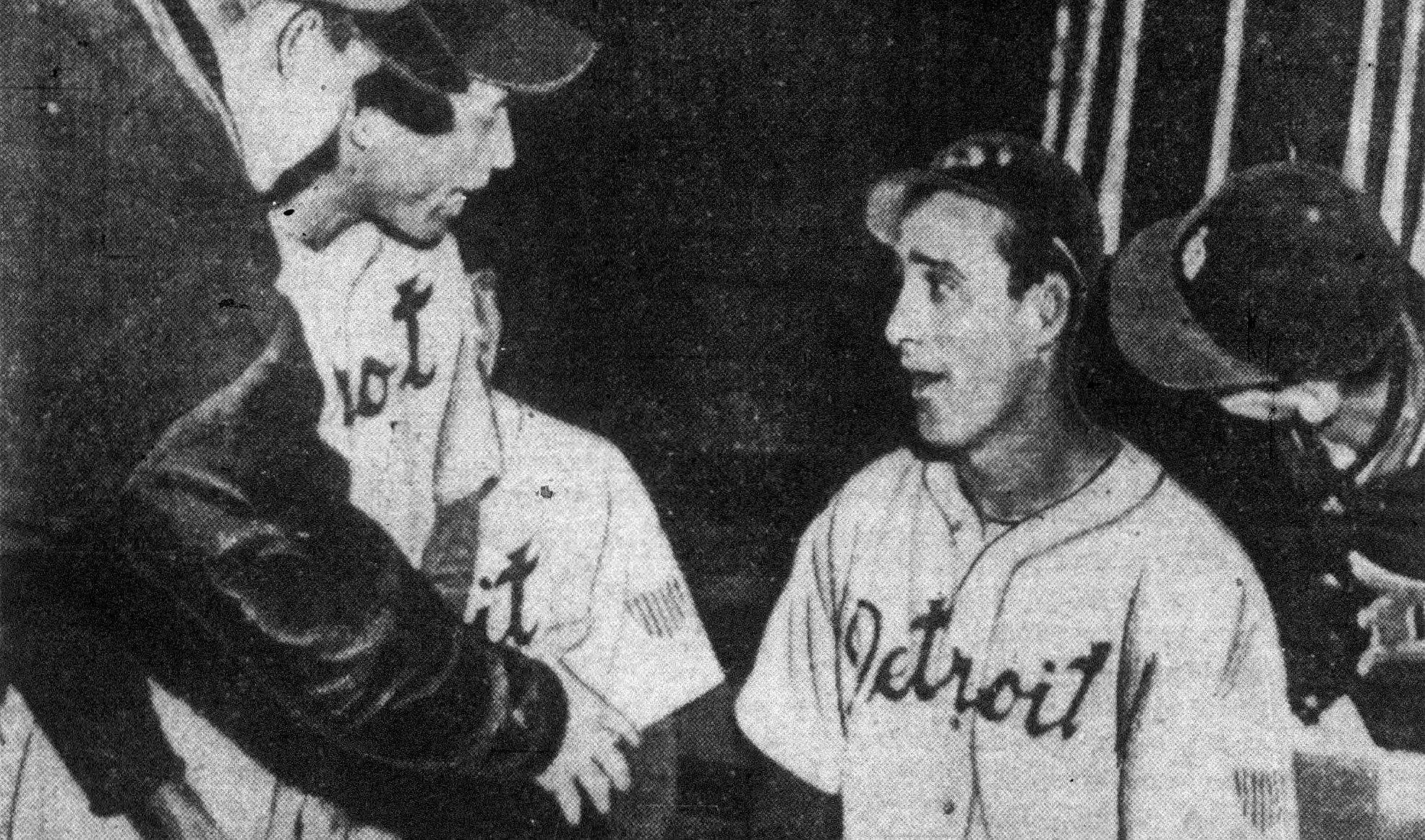
On April 15, 1947, Hank Greenberg played in his first game in a Pittsburgh Pirates uniform. He doubled in the only run of the game as the Pirates beat the Chicago Cubs 1-0 at Wrigley Field. A few hours earlier Jackie Robinson had trotted onto the infield at Ebbets Field and integrated baseball.
Greenberg, baseball’s first great Jewish star, grew up in the Bronx and was an avid New York Giants fan. When he was selected as the best first baseman in the New York city area, he thought that Giants manager John McGraw would sign him, but McGraw, who had said that a Jewish ballplayer would be a great attraction in New York, refused to give Greenberg a tryout.
When the Yankees became interested, they invited him to a game, but when Greenberg saw Lou Gehrig playing first base, he decided not to sign with the Yankees: “Not with him playing first base.” Instead, he signed with the Detroit Tigers, though they offered him less money than the Yankees.
In his Hall-of-Fame career with the Tigers, Greenberg won two MVP awards, and, in 1938, he hit a remarkable 58 home runs, just two shy of Babe Ruth’s record of 60 home runs in a season. In mid-season 1945, after returning from military service, he led the Tigers to a World Series victory over the Cubs. It was the Tigers’ second World Series victory and their fourth American League pennant since Greenberg joined them in 1933.
While Greenberg was a success on the field, he had to endure anti-Semitic taunts from fans and opposing ballplayers throughout his career. When he played in small southern towns in the minors, he faced both hostility and curiosity because he “was the first Jew they’d ever seen…. They seemed surprised that I didn’t have horns and a beard.”
When he reached the major leagues, the taunting became worse: “For at least ten years, I hardly played in a ball park where there wasn’t some loud-mouthed fan popping off with some anti-Jewish remarks.” The taunting from opposing teams became so vicious in the 1935 World Series, that home plate umpire George Moriarty had to warn Cub players to stop it.
Greenberg thought that the anti-Semitic insults helped him “more than it hurt… It brought out the best in me. I played all the harder.” But, he also thought that what he endured was nothing compared to what Jackie Robinson went through in 1947, Robinson’s first year with the Dodgers: “Teammates asking to be traded… opponents threatening to strike… places he couldn’t eat or sleep with the rest of the team. I never encountered anything like that.”
Greenberg, who signed with the Pirates in 1947 after the Tigers released him over a contract dispute, played his first game against Jackie Robinson on May 15, 1947, a month after Robinson integrated baseball. Played at Pittsburgh’s Forbes Field, the game featured one of the most dramatic moments in baseball’s racial history.
In the fourth inning, Robinson laid down a bunt and as he reached first base, Greenberg had to reach into Robinson’s path to field the throw from the Pirate pitcher Ed Bahr. When Greenberg and Robinson collided, Greenberg knock Robinson to the ground. Hall-of Fame sports writer Wendell Smith, reporting on the game for the Pittsburgh Courier, wrote that this was the kind of play that many opposed to Robinson said would cause “a riot.”
Instead Greenberg helped Robinson to his feet and, after making sure Robinson wasn’t injured, told him that he knew the prejudice against him was rough, “but just hang in there and fight back.”
Greenberg played in only one season in Pittsburgh before he retired as a player. After his retirement, he held several front office positions with the Cleveland Indians and the Chicago White Sox. He had a chance to become owner of the White Sox, but when he faced the same anti-Semitism from baseball’s owners that he faced as a player, he decided against it.
In 1956, Greenberg, who fought against anti-Semitism throughout his career and refused to play on Yom Kippur, became the first Jewish player elected to the Baseball Hall of Fame. It was the same year that Jackie Robinson played in his last baseball season.



